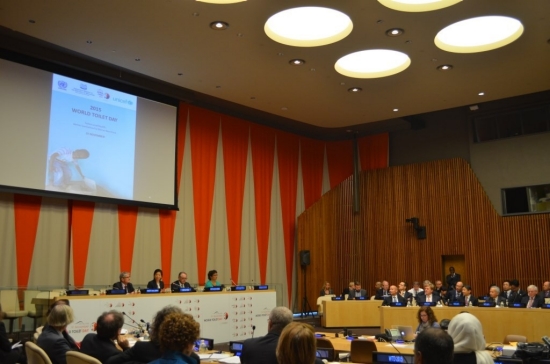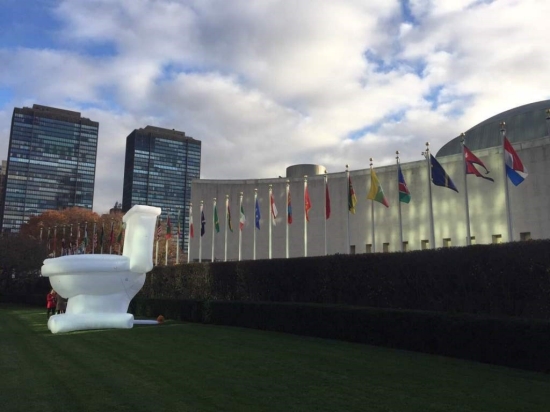19 Nov 2015
Your Majesty the King of the Netherlands,
Your Imperial Highness the Crown Prince of Japan,
Your Excellency Jan Eliasson, Deputy Secretary General, United Nations,
Your Excellency Mogens Lykketoft, President of the 70th session of the UN General Assembly,
Ms Geeta Rao Gupta, Deputy Executive Director, UNICEF,
Excellencies,
Ladies and Gentlemen,
1 This is the 3rd World Toilet Day that we are commemorating here at the UN. In the past three years, buy putting the spotlight on water and sanitation issues, the staggering figures of the 2.4 billion people that still lack improved sanitation facilities and the 946 million people who still practice open defecation have come to the fore. There is now more Awareness, Acceptance, Action and Accessibility to toilets because of our joint Advocacy. I would like to thank everyone here today - member states, civil society, academia, the private sector, and the UN family, especially our co-host UN Water - for your role, through the 5As, in breaking the taboo about speaking about toilets!
2 Singapore is honoured to have played a small part in championing the stand-goal on water and sanitation in the 2030 Agenda for Sustainable Development and is pleased that the advocacy and input from our past events have been taken on board. Looking ahead, we hope that the annual commemoration of World Toilet Day and similar events will continue to raise awareness about all the people who do not have access to a toilet and focus global attention on the urgent need to provide sanitation for all.
3 No one goal is more or less important than the other SDGs. The theme for this year’s World Toilet Day event is testimony to that. The findings of the joint report by the WHO, UNICEF, and USAID are clear: better sanitation facilities and practices will lead to better nutrition and health outcomes for everyone, everywhere, particularly among children. This in turn will contribute to healthier child development all over the world. Achieving SDG 6 will not only lead to improving the dignity and livelihoods of people around the world, it will also have positive effects on other SDGs, notably SDG 2 (on improved nutrition), SDG 3 (on healthy lives), SDG 4 (on education), and development more broadly. So, why are we still waiting? As Mr Jarraud has said, the time to act is now.
4 On our part, Singapore is committed to the global drive to end open defecation. Last year, in preparation for Beijing+20, we focused on the theme of women and girls, together with UN-Women. This year, we have worked with UN-Water and UNICEF to bring together practitioners to share their insights and experiences in improving sanitation and nutrition outcomes. In 2016, the tentative plan is to talk about sanitation and employment with the support of the ILO.
5 Apart from organising the World Toilet Day event annually, Singapore also announced, at the UN Sustainable Development Summit in September 2015, the launch of Singapore’s Sustainable Development Programme, a special technical assistance package to support the 2030 Agenda. Under this Programme, Singapore will partner UN agencies to provide technical assistance and capacity-building to developing countries, notably in water and sanitation solutions.
6 It is our hope that by being able to speak openly about what some might deem “unsanitary” or “taboo”, we gain a better appreciation of the water and sanitation challenges, come up with practical solutions through sharing ideas and best practices and take concrete actions, so that we can reach our target of ending open defecation in the next 15 years. Most importantly, we hope that the event today will drive home the message that acting together to address the specific goal, SDG 6, and giving the more than 2.4 billion people access to a toilet can have larger positive spin-offs for nutrition, health, education, women’s empowerment, development and the 2030 Agenda objective of leaving no one behind.
7 We look forward to an engaging and fruitful discussion today.

